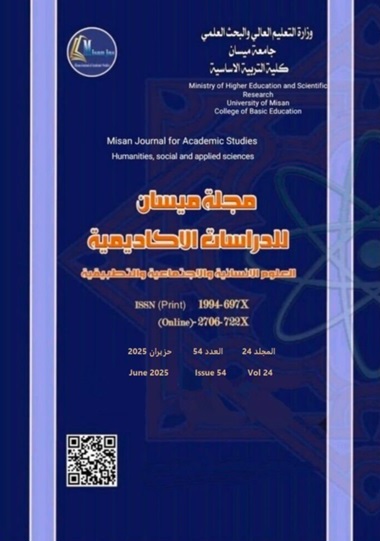The relationship of abrogation between the Qur'an and the Sunnah
Abstract
This study delves into the intricate relationship of naskh (abrogation) between the texts of the Quran and the Sunnah. The researcher explores the various scholarly viewpoints on the types of naskh, meticulously examining the evidence presented by both proponents and opponents. This exploration culminates in the establishment of the most sound position on each related issue.
The study elucidates that "abrogation of a ruling" (naskh al-hukm) is what is meant by the verses concerning "abrogation" (naskh), "substitution" (tabdil), and "erasure and affirmation" (mahw wa ithbat). The primary justification for its permissibility lies in its occurrence within the Quran itself. Furthermore, the study demonstrates that the Quran has abrogated certain rulings established by the Sunnah, such as the change of the qibla (direction of prayer). Critically, the study establishes the existence of multiple impediments that preclude the Sunnah from abrogating the Quran. The study underscores that the Quran is the foundation of the Sunnah's authority and validity. The Quran defines the Sunnah's primary role as clarification (bayan) and detailed explanation (tafsil) of the Quranic text. Consequently, the Sunnah is considered a branch and a subsidiary to the Quran, existing in alignment with it, not in opposition. Therefore, it is logically untenable for the Sunnah to abrogate the Quran.
Downloads
Copyright (c) 2025 (Humanities, social and applied sciences) Misan Journal of Academic Studies

This work is licensed under a Creative Commons Attribution-NonCommercial-NoDerivatives 4.0 International License.
The copyright is also the copyright of the magazine only.
All articles published in our magazine are subject to license terms
Creative Commons Attribution(CC BY-NC-ND 4.0) This license permits the content to be reproduced, redistributed and reused in whole or in part for any purpose free of charge, without any permission from the author(s), researcher or student.
Works submitted to Maysan Journal of Academic Studies for publication in the journal (CC BY-NC-ND 4.0) license terms. Where available content can be shared, distributed and replicated provided there is no commercial profit and appropriate credit must be given to the original source through sources or citations. It is mandatory to review any material used from other sources including shapes, tables, and images for re-use under the terms of the Creative Commons License (CC BY-NC-ND 4.0).Provided that there is no modification to the original content



